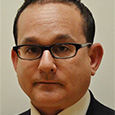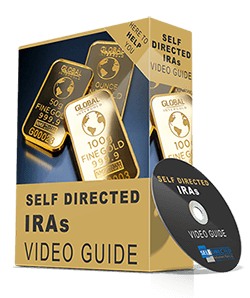Over my 13 years’ of experience working as a retirement planner, I have noticed how basic questions related to your 401k and IRA can become pretty overwhelming. The confusion and lack of information related to retirement plans motivated me to reach out to various experts for their views on the topic. So, here are 26 accomplished financial experts with years of expertise, providing you with their top financial planning tips for a better retirement. Learn what these industry thought leaders have to say and plan a better future for yourself and your families!

Q. How should a person handle multiple 401(k)s from previous employers? Is it best to consolidate them into a single plan or maintain separate ones?
A. I recommend rolling them into IRA’s so they have complete control over everything in one place. Makes planning and management much easier. The only exception to this is if you are retiring early (55) and need access to retirement funds. 401k’s have different provisions than IRA’s when it was your last employer.
Q. What’s a good time to convert a Traditional IRA to a Roth IRA? What criteria should you consider?
A. This will depend on your age, total traditional and Roth assets and your taxes. Since the conversion is taxable you want to ensure it does not create too big of a tax hit. The older you are the fewer benefits there are to rolling over. This is one that I highly recommend you work with a CPA to make sure you don’t create a tax headache.
Q. For people retiring with pension income, investments, a 401(k) and Social Security to draw from. Which sources should they turn to first to cover my expenses?
A. Pension and social security first. After that it will depend what types of accounts your investments are in and what your tax situation is. The longer you can leave money in accounts like a ROTH the more you will get compounding. However, if you need to take a large chunk out for a one time expense and you don’t want a tax bill, a Roth might be the right move. Again, it is important to make sure you work with a CPA to ensure there are no tax surprises.

Q: How should a person handle multiple 401(k)s from previous employers? Is it best to consolidate them into a single plan or maintain separate ones?
A. In most instances, it’s best to consolidate your 401k accounts if you have multiple ones from different employers. That way you can better track and manage your retirement portfolio, and analyzing returns is easier as well.
Q: What’s a good time to convert a Traditional IRA to a Roth IRA? What criteria should you consider?
A. If you think your salary and correspondingly your tax rate will notch up in the future, it might be a good idea to convert to a Roth now. If you’ll be leaving a significant estate to your heirs, including retirement accounts, it may also be better for them if it or they are of the Roth variety as well. Those are just a few examples. And how to actually do the conversion isn’t necessarily that easy, and there are rules and regulations for qualification. Your best bet is to get with a certified financial planner to see if one makes sense for your situation and they can assist with the actual conversion as well.
Q: For people retiring with pension income, investments, a 401(k) and Social Security to draw from. Which sources should they turn to first to cover my expenses?
A. It is best to withdraw from your taxable accounts first, and leave those of the tax-deferred variety for later, such as an annuity or traditional IRA. But this is just a general rule of thumb and may not apply to all situations. Again, it’s recommended that you get with a financial planner or advisor for more specific advice based on your needs, goals, and scenario.

Q: How should a person handle multiple 401(k)s from previous employers? Is it best to consolidate them into a single plan or maintain separate ones?
A. People used to get one good job and then stick with the company for life. That’s no longer the case, as the average worker has 11 different jobs by the time they turn 46. While that’s a great way to increase earnings and also job satisfaction, it’s a pain when it comes to 401(k)s.
Consolidating these 401(k)s into one place is a good idea, whether you choose to put the money into a rollover IRA or a new employee-sponsored plan. Consolidating helps you better track your finances and often cuts down on fees. However, it might be best to hold off on rolling it over until you know you’ll be in your current job for a while. It’s a matter of personal preference, but rolling over the old 401(k) into a new plan is a fairly hassle-free process.
Q: What’s a good time to convert a traditional IRA to a Roth IRA? What criteria should you consider?
A. Roth IRAs and traditional IRAs are invaluable retirement tools, but they usually serve better at different points in your life. The benefit of traditional IRAs is that the $5,500 maximum contribution is tax deductible. The downside is that you need to pay taxes once you start withdrawing the money at retirement age. Roth IRAs, on the other hand, offer no special tax deductions, but retirement withdrawals are tax-free.
So when – if ever – should you convert? Every person and their situation is different, so there’s no clear answer. Generally speaking, it makes sense to rollover from a traditional IRA to a Roth when you expect to be in a higher tax bracket in the future. For younger workers nowhere near retirement, a conversion makes a lot of sense.
Q: For people retiring with pension income, investments, a 401(k) and Social Security to draw from: Which sources should they turn to first to cover my expenses?
A. You can take Social Security as early as 62 years old, yet the amount you receive goes up if you can wait until a max of 70 years old. That sounds like a good idea, but research suggests that waiting doesn’t often pay off in the long term.
Regardless of whether you wait for the maximum Social Security payments or not, Social Security probably won’t be enough to cover all your expenses. If you have a pension, that’s great. Take that as soon as you can. Most of us aren’t so lucky, and the first place you might want to turn to are investments – including IRAs and 401(k)s. Try to follow the 4 percent retirement rule, where you withdraw 4 percent of your funds annually in order to make the money last.
Planning for retirement isn’t easy, but the stress can be lessened with research. Ask as many questions as you can until you feel confident about your options.

Q: How should a person handle multiple 401(k)s from previous employers? Is it best to consolidate them into a single plan or maintain separate ones?
A. I’m continually attempting to keep my finances and accounts simple. That said, if you and your spouse have had several jobs with various retirement plans, it’s not always an easy task. I recommend rolling over old 401(k) accounts into an existing or new IRA. It’ll make management easier going forward. If you can consolidate them into one IRA, that’s the best approach, in my opinion.
Q: What’s a good time to convert a Traditional IRA to a Roth IRA? What criteria should you consider?
A. This is a very tricky question, and involves projections on your current tax rate, your projected tax rate in retirement as well as whether you anticipate needing your IRA funds in the future. This decision is best left to discuss with an investment advisor. You might consider using this Schwab IRA conversion calculator.
Q: For people retiring with pension income, investments, a 401(k) and Social Security to draw from. Which sources should they turn to first to cover my expenses?
A. This is another tough question, dependent on many factors. Clearly if you’re age 70 1/2, start withdrawing from your IRA accounts (RMD). Next, you may want to withdraw income produced in taxable accounts. For this income you’ll probably pay capital-gains or qualified dividend tax which would be lower than ordinary income taxes due from a traditional IRA and 401(k). It’s also a good idea to let 401(k)’s and IRA’s grow tax deferred for as long as possible.

Q: How should a person handle multiple 401(k)s from previous employers? Is it best to consolidate them into a single plan or maintain separate ones?
A. Maintaining separate plans makes little sense and adds to the possibility of making a mistake with beneficiary forms and mandatory required distributions. The exception is if the you have a traditional or ROTH IRA of substance where there “may” be limitations on creditor Protections
Q: What’s a good time to convert a Traditional IRA to a Roth IRA? What criteria should you consider?
A. current and future tax brackets may dictate the timing of a ROTH conversion and in opinion, the ROTH IRA is where growth should be the objective. In addition, the fact that the future distributions will remain tax free, may dictate the beneficiaries to be named
Q: For people retiring with pension income, investments, a 401(k) and Social Security to draw from. Which sources should they turn to first to cover my expenses?
A. Social Security, for those who can afford to do so, should be delayed as long as possible UNLESS, health considerations are an issue. Then a balance between taxable investments and IRA distributions an finally, if applicable, the Joint and Survivor options available under Defined Benefit Pension Plans

Q. How should a person handle multiple 401(k)s from previous employers? Is it best to consolidate them into a single plan or maintain separate ones?
A. We don’t like to see assets left behind. Review the quality of your new employer’s retirement plan provider. If the new plan has good low cost investments and broad diversification options then consider consolidating all of the old plans into your new employer’s plan. 401ks are protected under ERISA rules thereby providing additional creditor protection and more flexible distribution options when compared to IRAs. However, if your new employer uses an expensive plan provider with limited investment choices then it may make sense to consolidate the old plans into an IRA rollover at a low cost custodian or mutual fund provider.
Q. What’s a good time to convert a Traditional IRA to a Roth IRA? What criteria should you consider?
A. If you have traditional IRAs with a market value not much higher than their basis (meaning you funded the IRAs with non-deductible contributions) then it makes sense to convert those IRAs into ROTH assets immediately since there will be limited tax consequences. If your IRAs have low to no tax basis then it makes sense to convert them to ROTH accounts in low income years. Especially those retirement years before required minimum distributions occur (age 70.5). It may make sense to work with a professional to completely work through these conversion strategies because there are so many variables. The last thing you want to do is convert IRA assets into ROTH assets because you are in a low income year only to find that you actually cost yourself even more taxes because of additional taxes on social security.
Q. What criteria should you consider?
A. Answered with previous answer. Basis, age, taxable income, and other impacted income sources (social security) are all important considerations.
Q. For people retiring with pension income, investments, a 401(k) and Social Security to draw from. Which sources should they turn to first to cover my expenses?
A. Hard question to answer with general advice since everyone is different when you take into consideration their age, family health history, different income sources, and balances in different tax treated assets (after-tax, tax deferred, and tax-free). If longevity and good health are in your family we generally recommend waiting until full retirement age to take social security benefits. Determining when to take pension benefits is also impacted by spouse survivor benefits. Make sure you understand what the different payment options are and how each will impact loved ones. This is another topic that makes sense to educate yourself fully, but still consider seeking the guidance of a professional to ensure that a complete plan is developed taking into account all of the unique variables.

Q. How should a person handle multiple 401(k)s from previous employers? Is it best to consolidate them into a single plan or maintain separate ones?
A. I’m a big believer in keeping things as simply as possible. Consolidating several smaller accounts into a single larger account makes it easier to keep track of your finances. And as a general rule, it makes sense to consolidate old 401(k) plans into a Rollover IRA. The investment selection tends to be better, and the fees are often lower.
Q. What’s a good time to convert a Traditional IRA to a Roth IRA? What criteria should you consider?
A. When you do a Roth conversion, you’ll generally get a nasty tax bill for the tax year of the conversion. So, it makes sense to do a conversion in a year when your income might be temporarily depressed due to a layoff or due to some other circumstance that temporarily lowered your income.
Q. For people retiring with pension income, investments, a 401(k) and Social Security to draw from. Which sources should they turn to first to cover my expenses?
A. Social Security is the “safest” income source because the payer in the U.S. government. If those checks quit coming, you know things must have gotten really bad out there. If possible, try to structure things in such a way that Social Security and any traditional pensions cover your basic living expenses, and use the 401(k) funds for lifestyle enhancements that you could live without if worse came to worst.

Q: How should a person handle multiple 401(k)s from previous employers? Is it best to consolidate them into a single plan or maintain separate ones?
A. I always recommend that investors consolidate any former employer 401(k)’s into a single rollover IRA. This makes tracking and management of the account much easier. It will also significantly reduce your expenses.
Q: What’s a good time to convert a Traditional IRA to a Roth IRA? What criteria should you consider?
A. The timing of conversion from a Traditional to Roth IRA is going to be different for everyone. If you have a year where your tax liability is reduce for some reason, that may be an advantageous time to make the switch. I always advise clients to check with their tax advisor before making the switch.
Q: For people retiring with pension income, investments, a 401(k) and Social Security to draw from. Which sources should they turn to first to cover my expenses?
A. In my opinion, pension and social security should be used as primary income streams in retirement with investments and 401(k) assets to be used as secondary or for discretionary needs. Ultimately you are going to be forced to draw down your retirement accounts later in life through Required Minimum Distributions. However, keeping those assets intact to continue growing in stocks and bonds is a vital part of a successful retirement plan.

Q. How should a person handle multiple 401(k)s from previous employers? Is it best to consolidate them into a single plan or maintain separate ones?
A. That’s a very personal matter, dependent on both the person’s investment objectives and other factors to consider such as the approach of Required Minimum Distributions (RMD), if applicable. For example, all 401ks could be consolidated for Rollover to an IRA at a self-directed IRA Custodian, if the investment objectives included non-standard assets such as real estate or private placements (because publicly traded securities can also be held in such an IRA — but as a personal preference, some clients may wish to maintain brokerage IRAs for their publicly traded holdings or for ‘trading’ purposes, while continuing to hold non-standard assets in the self-directed IRA.) In the case of RMD, many clients find it makes sense to maintain a mostly-cash IRA from which to take the Required Distributions — thus not having to continually juggle holdings in the self-directed and/or trading IRAs, to make the annual cash disbursements feasible.
Q. What’s a good time to convert a Traditional IRA to a Roth IRA? What criteria should you consider?
A. It’s always a good time to consider converting at least some, and I recommend clients consider annually whether their projected earnings for that year might make it more or less tolerable to pay the tax bill on a modest partial Roth Conversion. The long-term goal, it seems to me, is to move as much of one’s retirement plan holdings into the Roth space, by the time the age of 59 1/2 is reached, or as soon as possible thereafter.
Q. For people retiring with pension income, investments, a 401(k) and Social Security to draw from. Which sources should they turn to first to cover my expenses?
A. This depends on a range of factors for that person, meriting an assessment by a tax professional or planner with pertinent knowledge of that individual’s situation. I’m afraid this one lies out of my area of expertise, and anyway would be different for each person.

Q. How should a person handle multiple 401(k)s from previous employers? Is it best to consolidate them into a single plan or maintain separate ones?
A. Consolidate into an IRA
Q. What’s a good time to convert a Traditional IRA to a Roth IRA? What criteria should you consider?
A. Can you pay the tax associated with the conversion from outside sources
Q. For people retiring with pension income, investments, a 401(k) and Social Security to draw from. Which sources should they turn to first to cover my expenses?
A. Income should be used first, then non-qualified assets, and last qualified assets that are growing tax deferred.

It was a pleasure speaking with you today. Here at Next Generation Trust Services, we are a third party administrator so unfortunately we would not be able to advise when it comes to these types of questions. What we can tell you is that the best time to start saving for retirement is always now. The sooner you begin the journey of saving, the easier it can become. What we can also offer is education on the types of investments that clients can make with their self-directed IRAs. Our clients get creative and use their tax advantaged plans to loan funds, purchase real estate, invest in private companies, and much more.
If there is anything else I can help you with or any other questions you might have please feel free to contact me at your earliest convenience! My contact information can be found below, as well as our website and our twitter page.

Q: How should a person handle multiple 401(k)s from previous employers? Is it best to consolidate them into a single plan or maintain separate ones?
A. Generally it’s easiest just to roll the 401(k)s into either your new employer’s 401(k) if that’s available, or just roll into your existing Traditional IRA so you can consolidate them to help simplify things, especially if the amount in the account isn’t very high. However, a previous employer of mine used Schwab as the 401(k) administrator, and I use Schwab as my primary checking account, so I’ve elected to keep that 401(k) since it’s already at an institution I normally use.
Q: What’s a good time to convert a Traditional IRA to a Roth IRA? What criteria should you consider?
A. As far as criteria to consider, the major one is whether you want to be required to make minimum distributions from an account or not. Only the Roth IRA allows you to forego required minimum distributions (RMDs) which could be useful if you have other sources of income to draw from to handle your expenses during retirement, thereby letting you continue to accumulate funds in your Roth IRA and making sure you never run out of money to live off of.
There’s also the possibility that a conversion might push you into a higher tax bracket, but it’s less likely and only the portion of income above the new bracket will be taxed at the higher rate so it might not make as big of an impact as you think.
If you’re under 59.5 years old, also be aware that converted funds have a five year holding period before you can withdraw without a 10% penalty. There’s also an “undo” option called recharacterization that allows you to move the funds back into a Traditional IRA as long as you do it before October 15 of the following year, but hopefully you’ve thought the decision through and won’t need it!
Q: For people retiring with pension income, investments, a 401(k) and Social Security to draw from. Which sources should they turn to first to cover my expenses?
A. It’s assumed that the goal for ordering which income source to draw from is to minimize tax liability, which is why the answer varies depending on your age, the size of your assets, and your income levels over time. Conventional wisdom states that it’s better to withdraw from your taxable accounts first in order to allow your tax-deferred accounts more time to accrue tax savings, but this strategy might backfire on you if your Traditional IRA / 401(k) / 403(b) is large due to the fact that there are required minimum withdrawals.
In addition, it’s often stated that deferring Social Security payments will yield a bigger benefit, which is true, but statistically it’s more likely that your IRA will earn more than the amount that your Social Security payments will increase by, it’s just riskier in case the market takes a hit. In addition, the program’s payments may be reduced or the retirement age increased as the Social Security Trust is paying more than it’s earning at the moment, so it may potentially be beneficial to take SS first. Finally, there’s also the confounding issue of estate planning, so your decisions may differ depending on how much you want to leave for your heirs.
The one rule that seems safe to generalize is that withdrawing from a Roth IRA should always happen last since there’s no minimum withdrawal requirement at any time and the money is tax free!

Q: How should a person handle multiple 401(k)s from previous employers? Is it best to consolidate them into a single plan or maintain separate ones?
A. Previous plans are easier to manage when rolled into a single plan at a new provider. This is easily done online at any of the major brokerages.
Q: What’s a good time to convert a Traditional IRA to a Roth IRA? What criteria should you consider?
A. Roth conversions are considered taxable income in the year converted. Because we have a progressive income tax system, conversions should be initiated when earned income is low. I think converting is a no-brainer when the marginal tax rate is 15% or lower, but some might prefer converting even at the 25% marginal rate.
Q: For people retiring with pension income, investments, a 401(k) and Social Security to draw from. Which sources should they turn to first to cover my expenses?
A. This is a complex question, and it depends on individual circumstances. Delaying Social Security is generally a good idea, because each year delayed results in a 8% growth in the scheduled payout. Good luck finding a guaranteed 8% return elsewhere. How to structure withdrawals from traditional tax-sheltered accounts, Roth accounts, and taxable brokerage accounts depends on the account balance in each and the flexibility of withdrawals. You always want to minimize your marginal tax rate, so the sequence of withdrawals depends on the desired income level.

Q. How should a person handle multiple 401(k)s from previous employers? Is it best to consolidate them into a single plan or maintain separate ones?
A. It really depends on the individual plans — some 401(k)s have high administrative fees or poor investment choices, while others have lower-cost funds than average. In general, the larger your plan, the less costly it is likely to be. So it’s important to look into the fees you’re paying and if you could do better elsewhere, or you want a larger investment selection, it makes sense to roll over to an IRA. Administratively, it can also be easier to have your money in one place.
Q. What’s a good time to convert a Traditional IRA to a Roth IRA? What criteria should you consider?
A. It makes sense to convert a traditional to a Roth when your income is down, as you’ll pay taxes on the conversion. So if you’ve decided this is the strategy for you and you’re having a low-earning year, it might be time to pursue it. You also want to consider whether a Roth IRA is right for you — generally, a Roth makes sense if you think your income and tax rate will be higher in the future. That’s often true for younger workers, but older workers may have less clarity. If you’re not sure, it makes sense to work with a tax advisor.
Keep in mind, too, that you don’t have to convert the whole account balance — you can convert a portion of it. You want to be able to afford to pay the taxes owed with money you have outside of the account.
Q. For people retiring with pension income, investments, a 401(k) and Social Security to draw from. Which sources should they turn to first to cover my expenses?
A. In retirement, you want to focus on minimizing taxes and allowing your investments to continue to grow. Many people will spend 20 or 30 years in retirement, so you need that growth so your money lasts as long as you do. It makes sense to work with a financial advisor to create a customized retirement income plan.
Depending on how old you are, you may be pushing up against required minimum distributions, which apply to employer plans like 401(k)s and traditional IRAs at 70 1/2. The IRS wants to start collecting on those taxes you’ve been deferring.
Beyond that, though, it’s often best to allow tax-deferred money to continue to be tax-deferred, so most people would want to take those RMDs and then pull any additional income needed from taxable accounts, which are subject to capital gains but not ordinary income taxes. Roth IRAs are not subject to RMDs, and most people want to use withdrawals from them to stay in a lower tax bracket, since qualified Roth distributions in retirement are tax-free. For example, if you’re bumping against the next tax bracket, but you need to draw more money, you may want to take that additional money from a Roth.
Finally, it’s generally best to delay Social Security until age 70, as you get a raise for each year you put it off.

Q. How should a person handle multiple 401(k)s from previous employers? Is it best to consolidate them into a single plan or maintain separate ones?
A. In most cases it makes more sense to consolidate accounts. Some of the main advantages of consolidating accounts are; simplicity in having 1 account as opposed to 3 or 4, easier to balance and update and generally lower fees. Before consolidating, however, make sure wherever you are deciding to put the money they have adequate investment options required to be properly diversified. It should also be noted that if you have company stock that you speak to your accountant prior to rolling it over as there may be some tax implications.
Q. What’s a good time to convert a Traditional IRA to a Roth IRA? What criteria should you consider?
A. Before we address the question at hand I think it is important to clarify the difference between the two retirement accounts. A traditional IRA uses pre-tax money, grows tax free and then is taxed as ordinary income once taken out. The advantage is that you get an immediate tax break on the amount invested into the traditional IRA. A Roth IRA uses after-tax money, so there is no deduction, however it grows and is distributed tax free.
To address the question of when to convert, the first scenario is if you believe you will be in a higher tax bracket when you take the money out then you are now. If you believe you will be, it is better to take the tax hit now and be able to take out the money tax free when you are in the higher tax bracket. The second scenario is if you are younger and don’t have a lot of income. Allowing this account to grow tax free for a longer period of time will be extremely beneficial in terms of overall account value. Also, if you are in a low income bracket, the possible tax event that will be triggered when converting will be a little easier to handle. The third scenario is if you are ineligible to open up or contribute to a Rothdue to your income (limits on single and married filers are $132,000 and $194,000 respectively for 2016). This is counter to what was suggested in the last scenario as you would pay more in taxes to convert however this may be necessary in the event you need more diversification in regards to taxed vs non-taxed income during retirement.
Q. For people retiring with pension income, investments, a 401(k) and Social Security to draw from. Which sources should they turn to first to cover my expenses?
A. Assuming the person is over the age of 59 ½ and will not have any adverse tax consequences form early withdrawal there are some strategies one can use to maximize benefits. First, if someone does has a pension, social security AND other investments the first piece of advice is to delay social security for as long as possible to maximize your benefit. Second, make sure you are taking the minimum distribution amount from your taxable retirement accounts. Finally, work with your accountant or financial advisor to create an allocation and distribution strategy that takes into account your current and future tax environment.

Q. How should a person handle multiple 401(k)s from previous employers? Is it best to consolidate them into a single plan or maintain separate ones?
A. I would suggest rolling them over to your new company, at minimum. The best option is often to do a rollover from the previous employer, straight into a Roth IRA. Remember, you do have to claim that money as income, if you previously held a “Traditional” 401k since you’re transferring from a pre-tax arrangement to a post-tax, but it’s worth it if you’re young. Make sure to do a direct transfer, from your previous employer to the IRA company, that way you won’t have to worry about paying penalties or forgetting to put it back into retirement.
Q. What’s a good time to convert a Traditional IRA to a Roth IRA? What criteria should you consider?
A. It’s mostly about age, but there are many factors. For age, if you’re under 40, you should most likely convert. If you’re around 40, you should ask a professional financial planner about your specific situation. If you’re close to retirement, it usually makes the most sense to stay with what you have. You have to consider a few other things, such as the tax bracket you’re in now, and the tax bracket you expect to be in once you retire. And of course, you have to meet the income requirements to do the Roth.
Q. For people retiring with pension income, investments, a 401(k) and Social Security to draw from. Which sources should they turn to first to cover my expenses?
A. Definitely use your pension first. If you can make it to Social Security age without tapping into your 401k or investments, you might as well do that. Live the life you want in retirement, but don’t start cashing anything out until you need to. You also have to remember that many, if not most, people work in retirement, often just for fun (though many do out of necessity). So there’s that income to consider as well.

Q: How should a person handle multiple 401(k)s from previous employers? Is it best to consolidate them into a single plan or maintain separate ones?
A. In my opinion it makes no sense to have multiple 401ks’, it makes them harder to keep track of and many former employers pressure ex-employees to remove their funds after termination, after all why should an employer manage the funds of a former employee….so yes it makes sense to rollover old 401k’s into one Rollover IRA since it may only be a matter of time before the ex employer forces you to do so and it makes record keeping much easier.
Q: What’s a good time to convert a Traditional IRA to a Roth IRA? What criteria should you consider?
A. Converting a traditional to ROTH IRA may trigger tax so doing it in a lower income year makes sense. However with the back door method where you fund the Traditional IRA first and then immediately roll it over into a ROTH IRA, today there is no such thing as a good time any longer since many of our clients are doing this annually.
Q: For people retiring with pension income, investments, a 401(k) and Social Security to draw from. Which sources should they turn to first to cover my expenses?
A. That question really depends on the analysis of their SS availability and age, SS recovery is very complex and needs to be considered with these factors and the taxpayers overall need for funds including the Required Minimum Distribution rules. There is no one set answer here that fits all taxpayers it is on a case by case basis.

Q: How should a person handle multiple 401(k)s from previous employers? Is it best to consolidate them into a single plan or maintain separate ones?
A. This is a great question and one that should be addressed with a financial advisor. You are certainly permitted to consolidate your old 401(k) s into one IRA to make a particular investment or to hold all of your investments with one particular IRA company. That being said, many clients with self-directed IRAs maintain multiple IRAs, one with a self-directed firm for their alternative investments and others with brokerage firms, banks etc. to hold more conventional assets.
Q: What’s a good time to convert a Traditional IRA to a Roth IRA? What criteria should you consider?
A. Generally speaking a good time to convert funds from a Traditional IRA to a Roth IRA depend on a number of factors. Usually the younger the individual is, the more sense it would make to convert to a Roth IRA knowing you have many more years to earn tax-free returns. If an individual has a lot of tax losses in a year, they will offset the income from doing a Traditional to Roth conversion and thus it can make a better time to do a conversion. Other criteria when determining the best time to do a conversion is the ability to pay the tax on the conversion out of pocket, the projected returns on your future investments, the current value of your IRA historically, and the effect the conversion may have on your eligibility for social programs (the bump in income from doing a conversion can make you ineligible for certain government programs). All in all, when deciding to do a conversion, a sit-down with your tax advisor is crucial and should be the first step you take.
Q: For people retiring with pension income, investments, a 401(k) and Social Security to draw from. Which sources should they turn to first to cover my expenses?
A. This is a great questions for an estate planning attorney, wealth advisor, and perhaps a tax advisor as well. Taking money from different sources and when to opt into Social Security are best addressed by those types of individuals. A self-directed custodian, like Advanta, focuses simply on holding alternative investments and does not provide advice in these areas.

Q: How should a person handle multiple 401(k)s from previous employers? Is it best to consolidate them into a single plan or maintain separate ones?
A. I personally like having all of my retirement funds in one place. When I left my job with the bank, I rolled my 401k over to an IRA with Vanguard. I have been so happy! It’s nice to log in and see the total of my accounts, and to not have to look anywhere else to see my retirement funds!
Q: What’s a good time to convert a Traditional IRA to a Roth IRA? What criteria should you consider?
A. We actually converted a Traditional IRA to a Roth IRA years ago. It had a small balance, which is probably the most important criteria to us. We didn’t want to have to pay taxes on a large sum of money! Since converting that Traditional IRA, we’ve only invested in Roth IRAs to not have to worry about taxes later.
Q: For people retiring with pension income, investments, a 401(k) and Social Security to draw from. Which sources should they turn to first to cover my expenses?
A. I would probably go with Social Security or pension funds first- there’s no guarantee that those will be around forever. After that, I would start taking from my “own” money to cover expenses.

Q. How should a person handle multiple 401(k)s from previous employers? Is it best to consolidate them into a single plan or maintain separate ones?
A. It is usually best to consoldate. This makes it easier to track and manage the money.
Q. What’s a good time to convert a Traditional IRA to a Roth IRA? What criteria should you consider?
A. The best time to do this, all things being equal is when/if you are in a much lower tax bracket It also might make sense to do this if your overall objectives change and you plan to leave the Roth IRA to beneficiaries.
Q. For people retiring with pension income, investments, a 401(k) and Social Security to draw from. Which sources should they turn to first to cover my expenses?
A. Pensions/Social Security will come in regardless and will create taxable income so you might as well use that money first. Then, tap into investments (taxable) and finally the 401k.

Q: How should a person handle multiple 401(k)s from previous employers? Is it best to consolidate them into a single plan or maintain separate ones?
A. It would depend on what types of investments the person wants to make. If they want to invest part of their 401(k)/IRA funds overseas, then they could set up one IRA with a custodian that allows for alternative (non-stock/bond) investments and offshore investments and transfer an amount they want to invest overseas into that IRA. Then a second IRA at a traditional brokerage custodian could be set up for their standard stock, mutual fund, and bond investments.
Q: What’s a good time to convert a Traditional IRA to a Roth IRA? What criteria should you consider?
A. If you find the value of your traditional IRA has dropped significantly, that would be a good time to convert to a Roth IRA as you’ll pay taxes at the time of conversion. Converting in a year when your other income is lower than normal can make sense as well, as you could find yourself in a lower tax bracket.
Q: For people retiring with pension income, investments, a 401(k) and Social Security to draw from. Which sources should they turn to first to cover my expenses?
A. Typically, you’d use current income first (social security and pension income) then tap taxed account capital then untaxed account capital.

Q. How should a person handle multiple 401(k)s from previous employers? Is it best to consolidate them into a single plan or maintain separate ones?
A. I can only say what I would do and that is to consolidate them into a self-directed IRA. I like to keep our lives simple. Even today between my wife and me we have only four accounts at two low cost brokerage houses.
Q. What’s a good time to convert a Traditional IRA to a Roth IRA? What criteria should you consider?
A. The main criterion is your current tax bracket. I am not a big believer of paying taxes now on money that can grow tax deferred. However if you are in a low enough bracket where the transfer doesn’t affect your tax rate, then you could make the move even if this means spreading out the transfer over a number of years. It doesn’t have to be an all or nothing transfer.
Q. For people retiring with pension income, investments, a 401(k) and Social Security to draw from. Which sources should they turn to first to cover my expenses?
A. The “traditional” answer is to put off drawing social security as long as you can. However, because we retired early at the age of 38 we decided to take our social security payment at 62. After running the numbers numerous times and guesstimating possible life expectancy, we found that there was little difference in the total payout. Our plan is to invest our monthly payment into our current portfolio. This way if one of us croaks the spouse can receive at least some of the benefits of the system. Meanwhile we have more cash flow.
Once again this is a tax management issue. It is important to minimize your tax liability. What good is it to give up your social security, pension or 401K distributions to taxes? We started looking to manage our future taxes over 30 years ago and continue today.

Q: How should a person handle multiple 401(k)s from previous employers? Is it best to consolidate them into a single plan or maintain separate ones?
A. When a person has multiple 401 k’s from previous employers, it can be very confusing, time consuming and of course your investment choices are limited to the different plan’s administrators. I would always recommend to a client to consolidate the accounts into a single account. Depending upon the client’s situation, I would recommend a self directed IRA or a self directed 401 k. Each of these accounts would have checkbook control and allow the client to have a broad range of alternative investment choices.
Q: What’s a good time to convert a Traditional IRA to a Roth IRA? What criteria should you consider?
A. For most people, any time is a good time to consider a Roth conversion. But to be more specific, anyone under the age of 55 should really think about it. A Roth conversion is a taxable event – meaning any amount converted will have to be considered as income the following year. So the question comes down to – do I have time for my Roth conversion to overcome the expense of the taxes paid and then produce tax free income? For some older clients, they don’t have the time but in some cases, they are wiling to pay the tax so their heirs inherit a tax free account. I would always recommend a younger person to fully take advantage of either Roth contributions or Roth conversions. Once a Roth account is in existence for five years and the account holder reaches the age of 59 1/2, the whole account becomes TAX FREE and that is good thing.
Q: For people retiring with pension income, investments, a 401(k) and Social Security to draw from. Which sources should they turn to first to cover my expenses?
A. My advice for people who are fortunate enough to have multiple income streams, I would suggest the following. Use guaranteed income first, you know that check is coming in every four weeks or so. Pension income and Social Security are guaranteed income. Investment income and 401 k income may or may not be guaranteed. It really depends upon the type of investments the client has chosen. If there are dividends or guarantees from annuities, then that is another source of guaranteed income. If the investments are more volatile, then I would advise a client to become as conservative as possible and keep those funds at hand as long as possible.

Q. How should a person handle multiple 401(k)s from previous employers? Is it best to consolidate them into a single plan or maintain separate ones?
A. First, make sure that your asset allocation matches your situation – that means that you own the correct amount of stocks and bonds. Bonds are what control your overall investment risk; I discuss this in my book Why Bother With Bonds. If your asset allocation needs to be corrected then consolidating gives you an excellent opportunity to fix this. Second, strive for the lowest possible costs. There is no practical advantage for holding multiple 401(k)s or having your investments at more than one institution, and most people should achieve this with only one to three low-cost index mutual funds. Index funds outperform actively managed funds in the long-run because of their low costs. By consolidating you can sometimes get even lower fees (called “expense ratio”). Learn more from the educational videos at FinancingLife.org.
Q. What’s a good time to convert a Traditional IRA to a Roth IRA? What criteria should you consider?
A. The reasons to convert have to do with minimizing your taxes. One good reason to do this is because the amount of Social Security that counts as income increases when you have other taxable income and the Roth IRA creates a tax-free source of income while pulling from the traditional IRA is 100% income. Another reason to convert is that many have a lower tax bracket in retirement than when they were working. So the idea is to convert a traditional IRA to a Roth IRA during those first few years of retirement if you can do so up to the limit of the next tax bracket. For example, if you were in the 25% tax bracket while you were working, then the time between when you retire and start to receive Social Security might be an opportunity to convert some of your traditional IRA to a Roth IRA, but stopping when you reach the upper limit of the 15% tax bracket. Continue each year. Then when Social Security starts you have a source of tax-free money that you can use to control the amount of taxes on your Social Security income. The concept is simple, but the implementation requires that you think carefully about your budget and how you will finance those years between retirement and receiving Social Security. Learn more from the educational videos at FinancingLife.org.
Q. For people retiring with pension income, investments, a 401(k) and Social Security to draw from. Which sources should they turn to first to cover my expenses?
A. You have control over when you’ll start Social Security, which account you draw from and which assets you use. First consider whether, like most people, you are going to get maximum benefit by delaying Social Security. Until then, the accounts at your disposal will include your taxable investments, tax-deferred investments like a traditional IRA, and tax-free investments like a Roth IRA. Within those accounts you can have both stocks and bonds. Your taxable account is especially attractive to you during your early retirement years when you might wish to convert some IRA to Roth IRA. This is because it can be largely a return of your capital to you that isn’t recognized as new taxable income because it was previously recognized and taxed when you earned it. Further, you do pay taxes on gains but often at the more advantageous capital gains rate. Your tax-free money you have in a Roth account allows you to have some control over your overall tax exposure. Your ratio of stocks/bonds is how you control your risk. Keep this ratio under control, if not constant. Keep repeating the mantra: “I cannot predict the future. Nobody can.” Then, with this in mind, draw from stocks if your stock/bond ratio is above target, and draw from your bonds if your stock/bond ratio is below target. Learn more from the educational videos at FinancingLife.org.

Q. How should a person handle multiple 401(k)s from previous employers? Is it best to consolidate them into a single plan or maintain separate ones?
A. I prefer to consolidate retirement accounts where possible. It makes them easier to maintain, including rebalancing investments. Whether to consolidate into your current 401k or IRA depends on investment options. If you have a good 401k where you currently work, that’s my preference as their are some additional protections that IRAs don’t offer.
Q. What’s a good time to convert a Traditional IRA to a Roth IRA? What criteria should you consider?
A. The primary issue is taxes. If the conversion will trigger taxes, you want to make sure that your marginal tax rate at the time of conversion is lower than the tax rate when you later withdrawal the money. Of course, this will be a best guess, but it’s worth taking the time to think about it and make the best decision you can.
Q. For people retiring with pension income, investments, a 401(k) and Social Security to draw from. Which sources should they turn to first to cover my expenses?
A. Well pensions and Social Security have their own payout schedule. Apart from say delaying social security, you don’t have a lot of control on the payouts. As for everything else, there is no one right answer. Generally, however, I start with dividends from taxable accounts. Then the rest depends on the tax situation each year. If you are still in a low bracket, I’d withdraw from traditional 401k and IRA accounts. If you are in a higher bracket, focus on taxable and Roth accounts. And of course, once you hit 70 1/2, you must factor in RMD.

Q. How should a person handle multiple 401(k)s from previous employers? Is it best to consolidate them into a single plan or maintain separate ones?
A. The first thing is never cash them out. It not only undercuts your retirement savings goals but also causes a big tax and in most cases an early withdrawal penalty hit. Once that notion is out of the equation, the issue comes down to Costs and Available Investment Options. A 401K usually has limited investment options and may not reflect your long-term strategy. They usually have higher costs associated to them. That said, we always rolled our old 401Ks to an IRA where we could control costs and investments ourselves or with the help of our trusted CFP. I prefer having my retirement investments without having to be at the mercy of a past company’s 401K Plan administrator and all of their rules.
My only exception would be if your current employer’s 401K plan allows 401K direct rollovers into your 401K plan (which many do not) and you knew you would want to retire early from that job between the age of 55 to 59 1/2. Then exploring doing the 401K to 401K rollover may be worthwhile. That way if you plan to retire early at age 55 to 59 1/2 and need retirement savings you could access the combined 401K funds of your last company without early withdrawal penalty and only pay regular taxes. Once your 401K is rolled over to an IRA then the age 59 1/2 early withdrawal penalty rule applies to the funds.
Q. What’s a good time to convert a Traditional IRA to a Roth IRA? What criteria should you consider?
A. Always consider your tax rate and future tax rate. Normally the best time to do a Roth conversion is when your taxable income is low enough that any conversion doesn’t push you into a higher tax rate. You certainly do not want to pay a higher tax rate at conversion than you got deferred through your regular 401K payroll contributions.
Roth conversions should also be a part of your Social Security and RMD tax strategies with the goal of staying within lower tax rates and trying to avoid having all of your Social Security cross over the taxable thresholds. That may mean looking at making larger Roth conversions before starting to collect Social Security.
Q. For people retiring with pension income, investments, a 401(k) and Social Security to draw from. Which sources should they turn to first to cover my expenses?
A. Hopefully the pension and Social Security income would together cover a large percentage of expenses. Depending on portfolio size, strategies looking at delaying Social Security should be explored. Once that is settled then as far as portfolio withdrawals the conventional rule is to draw from non-retirement tax advantaged accounts first and then IRA / 401K followed last by Roth accounts. However after reading research results by William Reichenstein, Ph.D., CFA, (Tax Efficient Retirement Withdrawal Strategies) I believe that a tax advantaged approach should be considered to add longevity to my overall portfolio. One where the goal is to keep as much of the money as possible over the long-term by developing a withdrawal strategy that withdraws from both IRA taxable and non-taxable accounts when looking at overall tax rates and future RMD.
My plan is to do my Roth conversions yearly with the goal of staying in the 15% overall tax rate. I will be doing this until I begin taking Social Security. My Roth conversions are to support my future tax efficient withdrawal strategy that includes consideration of the low thresholds that make Social Security also taxable. While in early retirement I plan on paying up to 15% taxes on retirement withdrawals/conversions. Once I begin Social Security I plan to withdraw a combination of non-retirement savings, Roth money along with IRA money to avoid or limit taxes on my future Social Security and RMD. I’m just an early retirement aficionado, not a financial planner. These strategies can be complex so I will be working with my CFP to come up with my plan that’s unique to my situation. Everyone’s withdrawal and retirement funding plan should be tailored to their specific funding, portfolio, and budget goals.



